Gabbi knew that real estate was the right career from the start. She is now dual licensed in both Kentucky and Ohio. She had her first sale within a month of getting licensed and hit her first million in volume within her first 6 months. She will have her real estate license for the rest of her life. Call her anytime if you have questions about becoming a real estate agent. She loves to share her passion for real estate with others!
Instead of Buying AMC Stock, Consider Building Equity
We are tackling the critical question: should we buy or rent?
As an agent and a homeowner, I automatically lean toward the buying side of the argument, but I can see where renting make sense as well. There is a widely accepted storyline everyone’s timeline should be the same: go to college, get married, buy a house, start a family, and then eventually buy a bigger house to fit your expanded family. Not everyone agrees with this narrative anymore. Younger generations have been challenging the idea of homeownership for some time now. Homeownership amongst millennials is down to half the national average. The short answer to this question is “it depends” because it does largely depend on your circumstances. To cover both sides I am going to give the positives and negatives of each living situation and let you decide where you fit.
Pros of renting:
- More flexibility. If you are a young professional and you are not yet tied to one job or location, flexibility can be a huge factor in where you live. Breaking a lease is easier than putting your home back on the market and hoping it sells for more than your purchase price. The other option you have is to rent it out to other people, but who's going to manage the tenants if you live in another state?
- Possibly less expensive. Houses can be money pits. If you factor in the depreciation rate, property tax, mortgage interest rate, and marginal income tax of a typical taxpayer, the adjusted real rate of return on housing can easily fall below zero. Well-maintained home in a desirable location should appreciate over the long run but there are no guarantees
- Access to more amenities without the price tag. Do you know what’s great? A pool that you don’t have to clean or a gym that’s readily available inside your apartment building. Some perks come with renting because you can enjoy extra amenities you would normally have to pay for or maintain.
Cons of renting:
- No return on investment. You are never going to see the money that you pay in rent to your landlord each month. It’s not going to incur interest like in a savings account or build equity for you.
- Limited to landlord’s rules. Depending on your age and life circumstances, this could either be a deal-breaker or no problem at all. For instance, if you own a dog and your place does not allow pets, you’re going to have to move or pay extra fees. There are limitations on painting and hanging décor as well depending on how much you want to pay back the landlord when they have to repair or repaint the walls. If you are a single easy-going person, then this might not make a big difference to you.
- Inflation in rental rates. If your area is developing or the demand increases, you can be subject to increased rental rates. If this is an issue where you live, try to go to the suburbs or less populated areas. You can also wait for a deal on a sub-lease or live with roommates.
Pros of buying:
- Build equity for yourself. Your monthly payment that is paid to the principal portion of your loan amount is the amount of equity you currently hold in your home. You increase this number each month with every contributing payment. If you have extra cash, you can contribute more than your average monthly payment. This will speed up the process of paying off your loan entirely.
- Tax benefits. The U.S. tax code lets you deduct the interest you pay on your mortgage, property taxes, and costs involved in buying a home. If you are an independent contractor, with an at home office, your mortgage and utilities are considered business expenses. If you sell your home and use the proceeds to purchase another, you can avoid the profit gains tax.
- Rental possibilities. Passive income is also a perk of owning a property. If you can rent your home for more than the mortgage costs per month then you can have a profit gain. If you own a multi-family, you have the option of renting one side out for the entire mortgage payment. This allows you to live for free. Then when you go to sell the property, you can reap the benefits of the principal payments they made for you.
Cons of buying:
- Interest rates and additional fees. Interest rates rise and fall making borrowing money easier or harder. If you are buying in a market where there is an inflated interest rate it can cost you thousands of dollars. Keep in mind you can refinance for a lower interest rate down the line, so it’s not locked in forever. There are additional fees associated with buying a house as well. The realtor fees are going to be reflected in the purchase price paid for by the buyer. The buyer or seller will also have to come up with closing costs and additional costs tacked on by the loan officer.
- Unexpected maintenance costs. There are so many big-ticket items that need to be maintained if you own a home. This includes the furnace, water heater, garbage disposal, appliances, and more. The best you can do for yourself is have an emergency fund that you can use if one of these things breaks down and keep up with yearly maintenance as much as possible.
- Limited options within price range. If you are set on living in the most popular area or you want a certain school district, your options for buying could be out of your price range. Renting is sometimes the only way to affordably live in your desired location. You might also have limited options if you want to live near the city. The suburbs and less populated areas are normally less expensive.
Now that you have all the facts, where do you see yourself? Working toward a goal of homeownership or avoiding the extra costs of homeownership? Are you 50 and have a paid-off house and looking for something new near the city? Are you 24 and not ready for the commitment of a mortgage in one city? Either way, make sure to dive into your financials and read up on different opinions and strategies. I’m sticking with my dad’s quote as a kid, “never rent if you can buy.”
About the Author
Let's Stay Connected
Follow us on and become part of the PREC community
Never miss a tweet by connecting with us on Twitter
Check our our posts about trends in real estate industry and market
Recent Posts







